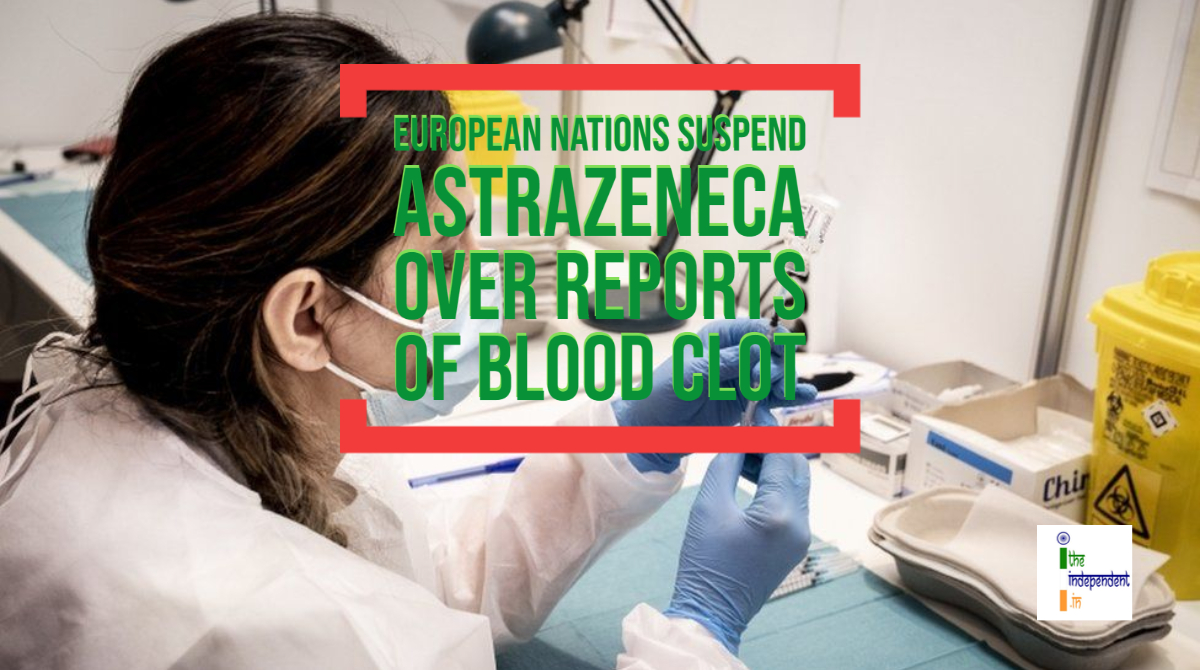
Denmark, Iceland and Norway have suspended the use of the Oxford University and AstraZeneca made Coronavirus vaccine
In a fresh trouble, Denmark, Iceland and Norway have suspended the use of the Oxford University and AstraZeneca made Coronavirus (COVID-19) vaccine, after reports of blood clots in people who took the shot.
Denmark was the first country to suspend the vaccine for 2 weeks after a number of cases, including 1 fatal case. It was followed by Iceland and Norway. However, they have not announced the suspension period.
Speaking on the occasion, the Health Minister of Denmark – Magnus Heunicke said that the pause is a precautionary measure and it is too early to make inferences.
Taking it to twitter, Heunicke tweeted (translated from Danish), “The health authorities have, due to precautionary measures, suspended vaccination with AstraZeneca following a signal of a possible serious side effect in the form of fatal blood clots. It is currently not possible to conclude whether there is a connection. We act early, it needs to be thoroughly investigated #COVID19dk.” Original tweet in Danish:
Sundhedsmyndighederne har af forsigtighedshensyn sat vaccination med AstraZeneca i bero efter signal om en mulig alvorlig bivirkning i form af dødelige blodpropper. Det kan pt ikke konkluderes, om der er en sammenhæng. Vi handler tidligt, det skal undersøges grundigt #COVID19dk
— Magnus Heunicke (@Heunicke) March 11, 2021
The Director of the National Board of Health, Denmark – Soren Brostrom said, “We are in the middle of the largest and most important vaccination rollout in Danish history. And right now we need all the vaccines we can get. Therefore, putting one of the vaccines on pause is not an easy decision. But precisely because we vaccinate so many, we also need to respond with timely care when there is knowledge of possible serious side effects. We need to clarify this before we can continue to use the vaccine from AstraZeneca.”
Meanwhile, the European Medicines Agency (EMA), E.U.’s agency in charge of the evaluation and supervision of medicinal products, said that there is no indication that the Oxford-AstraZeneca Covid-19 vaccine is linked to an increased risk of blood clots.
The EMA said, “The vaccine’s benefits continue to outweigh its risks and the vaccine can continue to be administered while investigation of cases of thromboembolic events is ongoing.”
The EMA also noted that the number of blood clots seen in vaccine recipients was no higher than the rate among people who had not received the shot in Europe.
Spain’s Public Health Commission has announced to delay the vaccination of people aged between 55 and 65 years old with the AstraZeneca vaccine until there is a full review and conclusion of side effects by the European Medicines Agency (EMA).
However, AstraZeneca maintains that the safety of the vaccine has been extensively studied in Phase III clinical trials and peer-reviewed data confirms the vaccine is generally well tolerated.
The Medicines and Healthcare products Regulatory Agency (MHRA) in United Kingdom (U.K.) said that there was no evidence the vaccine had caused problems and people should still go and get vaccinated when asked to do so.
Bryan Phil of MHRA said, “Blood clots can occur naturally and are not uncommon. More than 11 million doses of the Covid-19 AstraZeneca vaccine have now been administered across the UK.”
The decision to temporarily suspend the use of AstraZeneca’s jab has come as a setback for a European vaccination campaign that is already struggling due to delays in supply of vaccine by AstraZeneca and Johnson & Johnson’s Janssen.
Separately, Italy also banned the use of another batch of AstraZeneca vaccine as a lot of people reported some serious adverse events. Austria banned a different batch. The Austria banned the batch after a woman died of severe blood coagulation problems, days after taking the jab. Estonia, Latvia, Lithuania and Luxembourg have also suspended the use of the same batch as Austria. Romania has suspended use of 4,200 doses from the same batch of vaccines as Italy.







